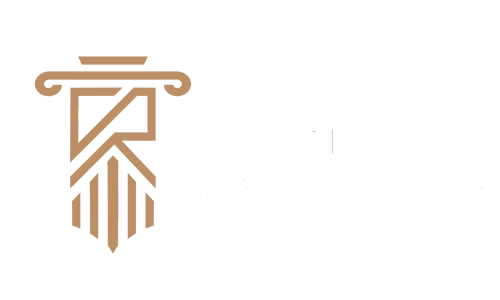Residency Options in Costa Rica: A Comprehensive Guide for Expats
Are you considering a move to Costa Rica? With its stunning landscapes, vibrant culture, and favorable climate, it's no wonder that many expats are drawn to this Central American paradise. However, before you can fully embrace the Pura Vida lifestyle, it's essential to navigate the country's residency process. In this comprehensive guide, we will explore the various residency options available in Costa Rica, providing valuable insights and helpful tips to make your transition smoother.
1. Temporary Residency Options
1.1 Pensionado Residency: Embrace Your Retirement in Paradise
If you're a retiree looking to make Costa Rica your new home, the Pensionado Residency may be the perfect fit for you. This visa is available to individuals who receive a minimum monthly retirement income of $1,000. Whether it's from a pension fund or Social Security, proving that your income is "for life" is crucial. Couples can qualify by demonstrating that one spouse meets the income requirement.



To begin the application process, visit your nearest Costa Rican embassy or consulate to obtain a provisional visa. Once you have this visa, you will have 60 days to enter Costa Rica and apply for your temporary residency. You will need to provide essential documents, including your passport, birth certificate, proof of retirement income, and a police clearance from your home country. Additionally, you will need to register your fingerprints with the Ministry of Public Security.
1.2 Rentista Residency: Live the Good Life with Unearned Income
If you're not quite ready for retirement but have a steady unearned income, the Rentista Residency may be an excellent option for you. To qualify, you must demonstrate a monthly income of at least $2,500 for a minimum of two years. This income can come from investments, savings, or rental properties and cannot be derived from work performed in Costa Rica.
To apply for the Rentista Residency, follow the same initial steps as the Pensionado Residency. Obtain a provisional visa from your nearest Costa Rican embassy or consulate, and within 60 days of arrival, apply for your temporary residency. Gather the necessary documents, including your passport, birth certificate, proof of income, police clearance, and register your fingerprints.
1.3 Inversionista Residency: Invest in Costa Rica's Future
For those looking to make a substantial financial investment in Costa Rica, the Inversionista Residency offers an attractive path to residency. To qualify, you must invest a minimum of $150,000 in real estate, stocks, bonds, or another approved opportunity. If married to a Costa Rican citizen, you can apply for temporary residency as a spouse.
The Inversionista Residency provides a range of benefits, including tax exemptions on imported household items and vehicles, the ability to legally work in Costa Rica, and the option to import two vehicles without paying import taxes, tariffs, and VAT.
2. Permanent Residency Options

2.1 Residency for Spouses: Love Knows No Borders
If you're married to a Costa Rican citizen, you have the opportunity to apply for permanent residency as their spouse. After two years of marriage and residing in Costa Rica, you can begin the application process for permanent residency. This route provides stability and the freedom to live and work in Costa Rica without restrictions.
To apply, you will need to gather essential documents, including authenticated and translated background checks, birth certificates, certified copies of passports, marriage certificates, and five passport-sized photos. Additionally, you will need to pass a Spanish language and history test.
2.2 Residency for Parents of Costa Ricans: Building Family Ties
If your child is a Costa Rican citizen, you can apply for permanent residency as their parent. This residency option, known as residencia permanente por vinculo, allows you to establish long-term roots in Costa Rica. To qualify, you will need to provide the necessary documentation, including authenticated and translated background checks, birth certificates, certified copies of passports, and five passport-sized photos.
2.2 Residency for Parents of Costa Ricans: Building Family Ties
If your child is a Costa Rican citizen, you can apply for permanent residency as their parent. This residency option, known as residencia permanente por vinculo, allows you to establish long-term roots in Costa Rica. To qualify, you will need to provide the necessary documentation, including authenticated and translated background checks, birth certificates, certified copies of passports, and five passport-sized photos.
2.3 Citizenship: Making Costa Rica Your Forever Home
As a permanent resident of Costa Rica, you have the opportunity to apply for citizenship. Obtaining Costa Rican citizenship offers a range of benefits, including the right to live, work, and vote in the country. A Costa Rican passport provides visa-free or visa-on-arrival access to many countries worldwide.
To apply for citizenship, you must have been a legal resident for at least three years. You will need to gather essential documents, including authenticated and translated background checks, birth certificates, certified copies of passports, and five passport-sized photos. Additionally, you may be required to pass a Spanish language and history test.
3. Self-Employment and Work Permits

3.1 Work Permits in Costa Rica: Navigating the Employment Landscape
Costa Rica places a strong emphasis on employing its citizens and permanent residents before offering jobs to temporary inhabitants. Work permits are generally only available to holders of permanent residency permits. However, some exceptions may be made for seasonal or freelance work.
To obtain a work permit in Costa Rica, you must first apply for either temporary or permanent residency. Permanent residents can work without restrictions, while temporary residents must prove that their position could not have been filled by a Costa Rican resident or citizen. If you have been offered a job by a Costa Rican company, your employer should apply on your behalf.
3.2 Self-Employment Visas: Pursuing Your Entrepreneurial Dreams
If you dream of running your own business in Costa Rica, there are several self-employment visa options available. The Special Category Residence permit, investor visa, and rentista visa offer pathways for entrepreneurs to establish their ventures in the country.
The Special Category Residence permit allows foreigners to work in specific occupations such as athletes, artists, inter-company transfers, self-employed individuals, and more. The investor visa requires a minimum investment of $200,000 in Costa Rican business or real estate. The rentista visa is for individuals who can demonstrate savings or unearned income of $2,500 per month for at least two years.
To apply for these visas, you will need to submit an application form, passport-sized photographs, birth certificates, employer statements, proof of investment or income, police clearances, and proof of registration with a Costa Rican consulate.
4. Tips for a Smooth Immigration Process

4.1 Engage a Costa Rica Law Specialist: Ensuring Success and Reliable Information
Navigating the Costa Rican immigration process can be complex and time-consuming. Engaging the services of a Costa Rica law specialist can provide expert guidance, ensuring a smooth and successful residency application. These professionals have in-depth knowledge of the immigration laws and can provide reliable information tailored to your specific situation.
4.2 Familiarize Yourself with Costa Rican Culture: Adapting to Your New Home
Before embarking on your journey to Costa Rica, take the time to familiarize yourself with the country's culture and customs. Learning a few key phrases in Spanish and understanding the local etiquette can go a long way in building relationships and integrating into the community. Embrace the laid-back Pura Vida lifestyle and be open to new experiences.
4.3 Attend Expat Events and Network: Building a Supportive Community
Before embarking on your journey to Costa Rica, take the time to familiarize yourself with the country's culture and customs. Learning a few key phrases in Spanish and understanding the local etiquette can go a long way in building relationships and integrating into the community. Embrace the laid-back Pura Vida lifestyle and be open to new experiences.
Conclusion
Moving to Costa Rica is an exciting opportunity to embrace a new way of life in a beautiful and culturally rich country. By understanding the various residency options available, you can navigate the immigration process with confidence. Whether you're seeking retirement bliss, self-employment opportunities, or a chance to build a family, Costa Rica offers a range of pathways to make your dreams a reality. Engage a Costa Rica law specialist, familiarize yourself with the local culture, and connect with the expat community to ensure a smooth transition. Welcome to your new home in Costa Rica!




